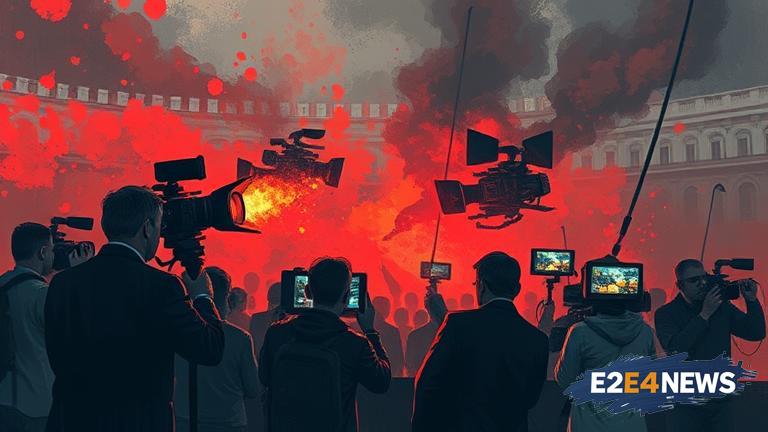The year 2025 has marked a significant decline in media freedom in Belarus, with the government implementing stringent measures to control the narrative and suppress dissenting voices. The media landscape in Belarus has been under siege, with independent outlets facing intense scrutiny and harassment. Despite international condemnation, the Belarusian authorities have continued to crack down on press freedom, citing national security concerns and the need to combat ‘fake news.’ The situation has led to a surge in self-censorship, with many journalists and media outlets opting to toe the government line rather than risk persecution. The few remaining independent media outlets have been forced to operate in the shadows, using encrypted communication channels and secure servers to avoid detection. The government has also employed sophisticated surveillance techniques to monitor the activities of journalists and activists, creating a climate of fear and intimidation. In response to the deteriorating media landscape, international organizations and human rights groups have called for urgent action to protect press freedom in Belarus. The United States, European Union, and other Western countries have imposed sanctions on Belarusian officials and entities responsible for the crackdown on media freedom. However, the Belarusian government has remained defiant, accusing the West of interfering in its internal affairs and attempting to undermine its sovereignty. The media freedom crisis in Belarus has also had a profound impact on the country’s civil society, with many activists and opposition leaders facing arrest and prosecution for their online activities. The government has used the pretext of ‘extremism’ to ban opposition websites and social media channels, further restricting the space for free expression and dissent. In a bid to circumvent the government’s censorship, many Belarusians have turned to alternative sources of information, including social media and messaging apps. However, the authorities have also sought to restrict access to these platforms, using sophisticated filtering technologies to block ‘undesirable’ content. The situation has sparked widespread concern among the international community, with many calling for increased support for independent media and civil society in Belarus. The United Nations has also weighed in on the issue, condemning the Belarusian government’s crackdown on media freedom and urging it to respect the rights of journalists and citizens. Despite the challenges, many Belarusian journalists and activists remain committed to their work, using innovative tactics and strategies to evade censorship and continue reporting on the situation in the country. The struggle for media freedom in Belarus is far from over, with the outcome hanging precariously in the balance. As the situation continues to deteriorate, it remains to be seen whether the international community will be able to exert sufficient pressure on the Belarusian government to reform its policies and respect the rights of journalists and citizens. The fate of media freedom in Belarus has significant implications for the wider region, with many fearing that a complete crackdown on press freedom could have a chilling effect on neighboring countries. In conclusion, the media freedom crisis in Belarus is a complex and multifaceted issue, requiring a comprehensive and sustained response from the international community. The situation demands urgent attention and action, lest the country’s independent media and civil society be silenced forever. The international community must continue to support and amplify the voices of Belarusian journalists and activists, using all available means to pressure the government to respect the rights of its citizens. Only through collective action and solidarity can the struggle for media freedom in Belarus be won, and the country’s independent media and civil society be protected from the forces of repression and censorship.





